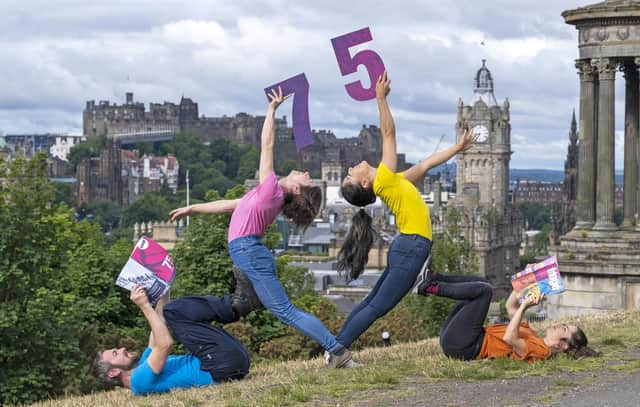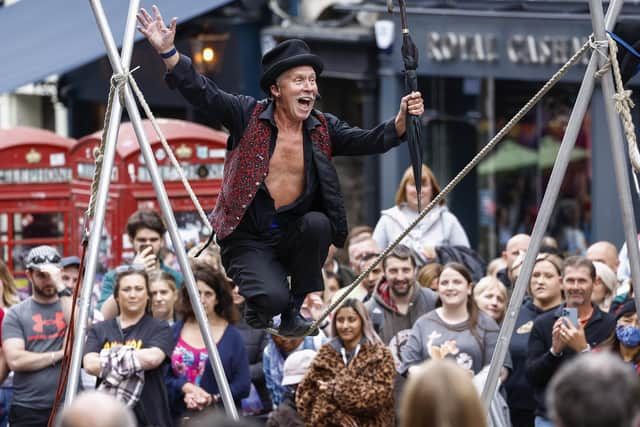Edinburgh's Fringe venues need to reflect on their ambitions for expansion – Brian Ferguson


The prospect of the arts festival going head to head with the London Olympics for its first couple of weeks had caused many a sleepless night for those with a stake in Edinburgh’s annual cultural celebration.
In the end, the Fringe shrugged off the challenge and recorded ticket sales of more than 1.85 million, the second highest in its history, and just 300,000 short of the previous year’s record.
Advertisement
Hide AdAdvertisement
Hide AdI was prompted to take a trip down memory lane by the ringing of alarm bells by the biggest Fringe operators as the curtain was about to fall on this year’s event, as they revealed a 25 per cent drop in their collective audience.


The “soaring” cost of accommodation in Edinburgh was cited as the “chief” reason for the festival’s apparent decline in a lengthy statement warning that the future of the Fringe was at risk unless a “lasting solution” could be found.
There is no doubt affordable accommodation – long cited as a barrier to participation – is the number one issue for many of those who perform or work in the festivals.
But is it right to conflate the accommodation issue with a decline in ticket sales?
As ever with the Fringe, which sold 2.2 millon tickets this month, nothing is simple, but it struck me as pretty misleading.
The venues conceded there were a whole host of other issues, including the cost-of-living crisis, public transport disruption, and the “lingering effects” of Covid.
Anyone with a stake in the festivals will have their own theory as to which had the most impact.
But the big story that has been overlooked is one of the remarkable renaissance of Edinburgh’s festivals in a year with more challenges than I can recall.
Advertisement
Hide AdAdvertisement
Hide AdIt seems to have been almost forgotten where Scotland’s cultural sector was at the turn of the year, with every venue and event brought to a halt by Covid.
Eight months later, the first full-scale Fringe for three years has achieved the sixth highest ticket sales in its history.
When other events like the international and book festivals and the Tattoo are added into the mix the overall attendance is well over 2.5 million, an achievement any city should be proud of.
While venues, events and hotels may not have been at capacity, Edinburgh’s festival buzz was unmistakably back, at a more comfortable level for many.
However it is clear there is a desire from the bigger Fringe venues to get back to the audience level of 2019.
But there are two serious problems with that ambition.
It flies in the face of pre-pandemic concerns from the city council about crowd congestion, as well as pledges from the Fringe Society and Festivals Edinburgh, which oversees the city’s major events, that constant growth is not a priority.
The venues were key to the overall audience increasing by a million between 2014 and 2019, an astonishing leap by any standard.
It is time for them to seriously reflect on how much a factor the Fringe’s expansion has been in hiking up accommodation costs – and the part they can play in cooling the entire eco-system down.
Comments
Want to join the conversation? Please or to comment on this article.
